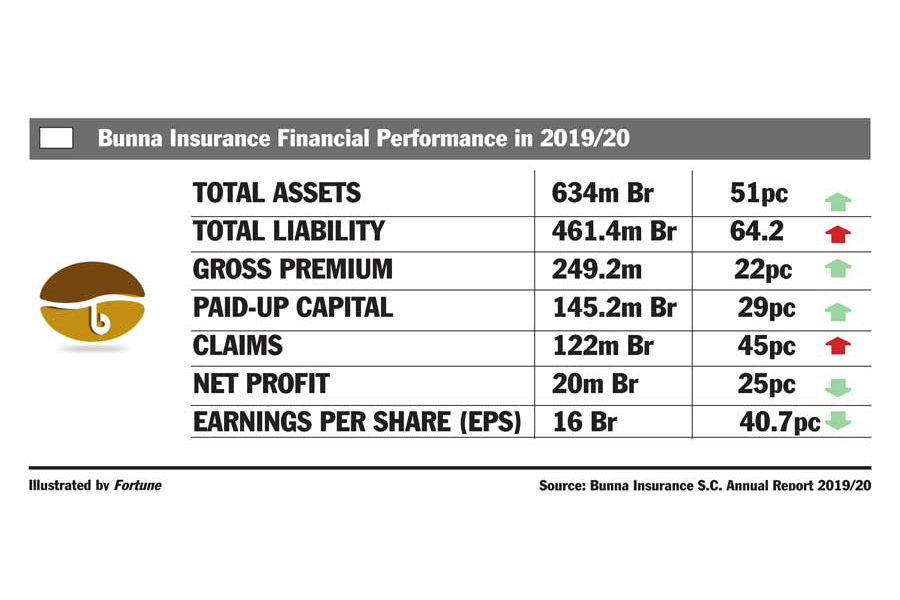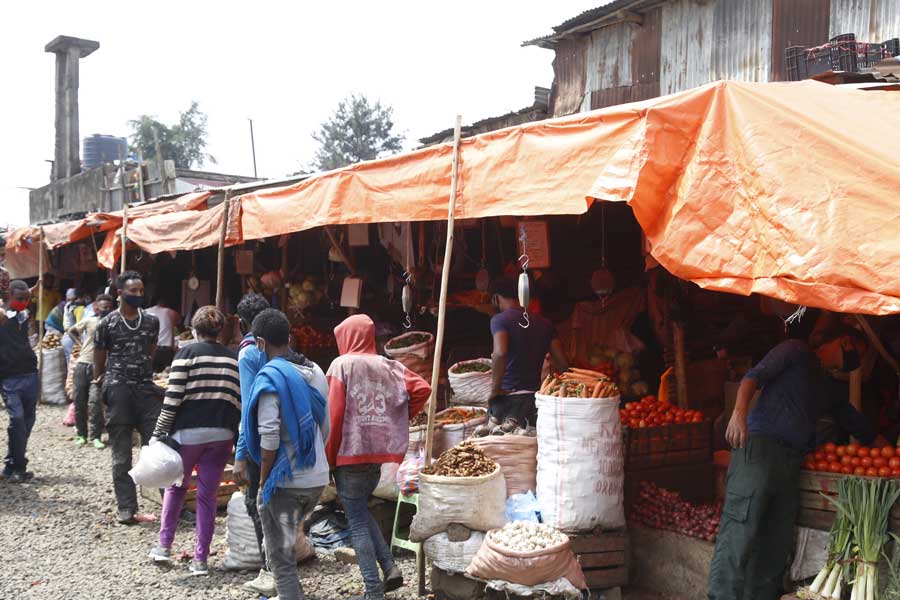
Mar 17 , 2020
The latest figures from the Central Statistical Agency show that food inflation has marked a 3.1-percentage-point increase to reach 25.1pc, year-over-year. This has pushed a quintal of white teff to more than 4,000 Br. As consumers struggle, experts blame agricultural productivity, long supply chains and a growing monetary base for the increase in food prices, writes TEMESGEN MULUGETA, FORTUNE STAFF WRITER.
Under normal circumstances, February is an amiable month to consumers of food items. Supply increases and inflation stabilises, offering a breath of fresh air in an economy where the cost of goods often puts severe pressure on citizens.
This was not the case this year in February. Despite being a harvest season, when traders rush to unload their items in storage in anticipation of increased supply in the market, food inflation has reached 25.1pc. This pushed headline inflation to 21.8pc last month, its second highest level in the past six years.
The rise in prices has been no less steep for Ethiopia’s staple food, teff, an indigenous cereal crop used to make injera. Within the past two months, white and red teff has gone up by 400 Br and 300 Br a quintal, respectively, an increase of around 10pc. Consumers with lower incomes have been forced to transition to the red teff, a less popular variety of the cereal, and mix it with rice and maize to meet their nutritional needs.
There is confusion over why the cost of food has not been letting up for the past two years. Factors from supply shortages to population growth and natural disasters are blamed. Farmers stress that no extra cash is going into their pockets and that intermediaries are hogging all the profits from the increase in the price of food.
This is a view shared by the government. But the authorities and policymakers are of the opinion that a permanent means of addressing the problem is improving productivity. They argue that agricultural productivity has increased by 21pc since the 2014/15 fiscal year, and commercial clustering, the introduction of contract farming and tax exemption for agricultural equipment to improve mechanisation could help improve that number further.
Experts knowledgeable of the agricultural sector do not believe that the government's approach is incorrect. They cite an increased money supply in the market and long supply chains as causes of the problem, as well as low productivity. But they also insist that short-term plans, such as subsidisation of major food items, can alleviate some of the problems. This will be prudent, they believe, especially as the global outbreak of the Novel Coronavirus disrupts supply chains and causes further inflationary pressure.
You can read the full story here .
PUBLISHED ON
Mar 17,2020 [ VOL
20 , NO
1038]

Radar | Aug 03,2025

Fortune News | Nov 29,2020

Sunday with Eden | Mar 07,2020

Fortune News | Aug 08,2020

Life Matters | Aug 05,2023

Exclusive Interviews | Feb 15,2020

Sunday with Eden | Nov 20,2021

Fineline | Nov 21,2018

Editorial | Apr 29,2023

Life Matters | Jan 21,2023

Dec 22 , 2024 . By TIZITA SHEWAFERAW
Charged with transforming colossal state-owned enterprises into modern and competitiv...

Aug 18 , 2024 . By AKSAH ITALO
Although predictable Yonas Zerihun's job in the ride-hailing service is not immune to...

Jul 28 , 2024 . By TIZITA SHEWAFERAW
Unhabitual, perhaps too many, Samuel Gebreyohannes, 38, used to occasionally enjoy a couple of beers at breakfast. However, he recently swit...

Jul 13 , 2024 . By AKSAH ITALO
Investors who rely on tractors, trucks, and field vehicles for commuting, transporting commodities, and f...

Oct 4 , 2025
Eyob Tekalegn (PhD) had been in the Governor's chair for only weeks when, on Septembe...

Sep 27 , 2025
Four years into an experiment with “shock therapy” in education, the national moo...

Sep 20 , 2025
Getachew Reda's return to the national stage was always going to stir attention. Once...

Sep 13 , 2025
At its launch in Nairobi two years ago, the Africa Climate Summit was billed as the f...